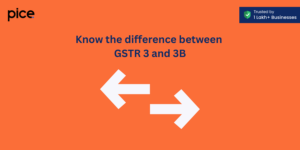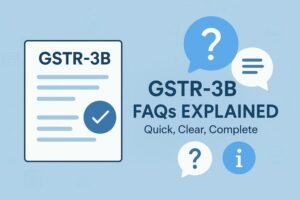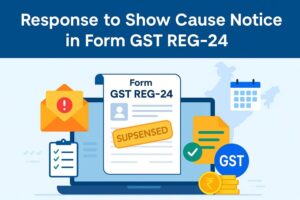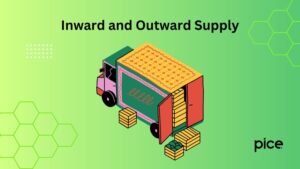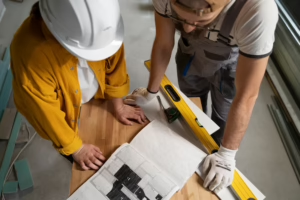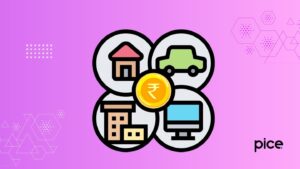GST on Home Loans in 2025
- 17 Nov 25
- 6 mins

GST on Home Loans in 2025
Key Takeaways
- GST is not charged on the home loan amount, EMI, interest, or principal—only on the loan processing and related service fees.
- Under-construction properties attract 18% GST, which can effectively reduce to 12% when builders avail input tax credit.
- Ready-to-move properties have zero GST impact for buyers, as taxes are already borne by the builder.
- GST simplifies earlier complex taxes (VAT, service tax, entry tax) and offers transparency and uniformity in home loan–related charges.
- Home renovation and construction benefit from a 6% input tax credit under GST, reducing overall project costs for homeowners.
GST on home loans is 18% which is applicable to the loan processing fee and not the loan value or interest. Goods and Services Tax, introduced in 2017 has significantly affected the price of commodities including home loans, in India.
Notably, GST does not apply to constructed properties as it is covered by constructors. However, GST on an under-construction property or under-construction homes (Real Estate Market) is 18% which can be reduced to 12% with input tax credit.
Learn in detail about the taxation on home loans here to make informed decisions.
GST on Home Loans: What It Means
GST on home loans apply to the home loan processing fees and additional legal costs. It does not apply to the cost of the property or the loan principal, interest or EMI. The additional costs of home loans might include prepayment, property document handling charges and partial payment.
Notably, GST for constructed houses apply to the constructor and not to the constructed house. Under-construction flats have a 12% GST levied on the processing fee. Initially, the GST rate for under-construction houses was 18%, which can be reduced to 12% by availing input tax credit.
Impact of GST on Home Loans
Prior to the introduction of GST, home loans were subject to value-added tax (VAT), entry tax and others. GST implementation has simplified the home loan taxation system and ensured transparency followed by accountability. GST introduction has further helped impose a uniform tax rate for home loans.
Notably, constructed houses do not have applicable GST. However, if you have a home loan sanctioned for an under-construction property, GST will apply on the processing fee. The builder gets input tax credit which results in a 12% total GST chargeable rather than GST being charged at 18%.
For ready-to-move-in flats or ready-to-move-in homes, the contractor needs to cover the taxes as GST is not applicable on home loans. This increases the overall property cost resulting in costlier housing loans.
Calculation of GST on a Home Loan
Here is an illustration to calculate GST for an under-construction property with GST on the processing fee at 12% (on availing input tax credit):
Suppose Mr X takes a home loan of ₹60 lakh from a bank with 1% processing fee. Thus, the processing fee amount is ₹60,000 and GST at the rate of 12% on the processing fee is ₹7,200. The final cost for the loan is ₹60,000 + ₹7,200 = ₹67,200.
Impact of GST on Home Renovation and Construction
Prior to the introduction of GST, various taxes were levied on property renovation such as sales tax charged as service tax, entry tax and others.
With the introduction of GST, constructors can get the benefit of 6% input tax credit which reduces the home renovation costs or construction costs.
Impact of GST on Home Loan EMI
GST does not apply to EMI (Equated Monthly Instalment) of home loans. However, with GST reduced to 12% (with input tax credit) from 18% for under-construction properties, the EMI has decreased significantly.
Nevertheless, for constructed buildings, constructors bear the cost which leads to higher costs and EMI.
Impact of GST on Home Loan Interest Rates
As the GST for under-construction property can be reduced to 12% with input tax credit, a lower loan amount results in a lower interest rate which reduces the homeowner's costs of purchasing a property.
GST on home loans is a mandatory taxation for home buyers. However, home loan principal, EMI or interest rates do not attract GST rates in India like personal loans and business loans.
Moreover, with GST law enforcement in 2017, constructors can reap the benefits of input tax credit (tax benefit) of 6%, which reduces the cost of renovating homes. As a result, GST has been a beneficial dynamic in the home loan sector.
💡If you want to streamline your payment and make GST payments via credit, debit card or UPI, consider using the PICE App. Explore the PICE App today and take your business to new heights.
 By
By 






